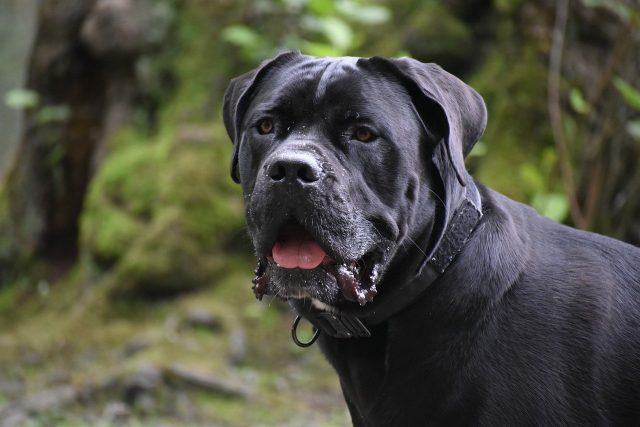Dogs have long been cherished companions, but their roles extend far beyond that of a household pet. Understanding what jobs dogs can do is crucial to appreciating their vast contributions to society. These intelligent and versatile animals perform a variety of tasks that enhance human lives in numerous ways. From assisting individuals with disabilities to supporting law enforcement, dogs’ abilities to learn and perform specialized roles make them indispensable in many fields.
This article explores the diverse jobs dogs can do, illustrating the significant impact they have on our world and highlighting why their skills and loyalty are so highly valued.

Service Dogs: Assisting Those in Need
Service dogs play a vital role in assisting individuals with disabilities, helping them lead more independent and fulfilling lives. These specially trained dogs perform tasks such as guiding the blind, alerting the deaf to important sounds, and assisting individuals with mobility issues by fetching items or opening doors. Guide dogs, for example, are trained to navigate obstacles and safely lead their visually impaired handlers through various environments. Hearing dogs alert their owners to sounds like doorbells, alarms, or crying babies. By performing these essential tasks, service dogs provide their handlers with greater autonomy and security.
Discover Dog Breeds That Naturally Comfort Humans
Therapy Dogs: Providing Comfort and Support
Therapy dogs offer emotional support and comfort to people in various settings, such as hospitals, nursing homes, schools, and disaster areas. Their presence alone can have a calming effect, reducing stress, anxiety, and depression. Therapy dogs are often brought into hospitals to visit patients, providing a welcome distraction and boosting morale. In nursing homes, they offer companionship and emotional support to the elderly. Schools also utilize therapy dogs to help students with special needs or to provide stress relief during exams. The unconditional love and affection therapy dogs offer can significantly improve mental health and overall well-being.
Detection Dogs: Utilizing Their Keen Senses
Detection dogs utilize their exceptional sense of smell to perform crucial tasks in various fields. These dogs are trained to detect specific scents, such as drugs, explosives, or even certain medical conditions. Bomb detection dogs are deployed in airports, public events, and other high-security areas to identify explosive materials and prevent potential threats. Drug detection dogs assist law enforcement in locating illegal substances. Additionally, some dogs are trained to detect medical conditions such as low blood sugar in diabetics or the presence of cancer cells. Their ability to detect minute traces of substances makes them invaluable in maintaining safety and security.
Police and Military Dogs: Serving and Protecting
Police and military dogs play a critical role in maintaining public safety and supporting law enforcement efforts. These highly trained dogs assist in apprehending suspects, detecting explosives, and locating missing persons. Police dogs, such as German Shepherds and Belgian Malinoiss, are often used for tracking criminals, searching buildings, and crowd control. Military dogs serve in combat zones, where they detect explosives, perform search and rescue missions, and provide security. The rigorous training these dogs undergo ensures they can perform their duties effectively, making them an essential asset in protecting public safety and national security.
Herding Dogs: Managing Livestock
Herding dogs are indispensable in agricultural settings, helping farmers manage and control livestock. Breeds such as Border Collies, Australian Shepherds, and Corgis are known for their herding abilities. These dogs are trained to move livestock from one place to another, gather animals, and keep them in designated areas. Their natural instincts, combined with specialized training, make them efficient at handling large groups of animals. Herding dogs reduce the need for manual labor, increase efficiency, and ensure the safety and well-being of the livestock they manage.
Hunting and Sporting Dogs: Aiding in Outdoor Activities
Hunting and sporting dogs assist hunters by retrieving game and tracking animals. Breeds like Labrador Retrievers, Beagles, and Pointers are commonly used for these purposes. These dogs are trained to follow scents, locate the game, and retrieve it without causing damage. Their keen senses and strong work ethic make them ideal companions for outdoor activities. Hunting and sporting dogs also participate in competitive events, showcasing their skills in activities such as field trials and agility competitions.
Learn About Big Dogs With Sweet Temperaments
Assistance Dogs: Supporting Daily Activities
Assistance dogs help individuals with various physical and psychiatric disabilities by performing tasks that support their daily activities. These dogs are trained to assist with mobility, retrieve dropped items, and provide support during medical emergencies. Psychiatric assistance dogs help individuals with conditions like PTSD, anxiety, and depression by providing comfort and interrupting harmful behaviors. By offering these vital services, assistance dogs enable their handlers to live more independently and improve their quality of life.
Personal Stories and Testimonials
Many individuals have shared heartwarming stories about how working dogs have positively impacted their lives. For instance, a woman with epilepsy might recount how her service dog alerts her to oncoming seizures, giving her time to seek a safe place. Another story could involve a therapy dog bringing joy and comfort to a child undergoing cancer treatment. These personal anecdotes highlight the profound difference that working dogs can make, emphasizing the importance of understanding what jobs dogs can do.
Find Highly Protective Dogs For Families
Conclusion: The Vital Roles Dogs Play in Enhancing Human Lives
Understanding what jobs dogs can do reveals the incredible range of tasks these animals can perform and the significant contributions they make to society. From providing essential services to individuals with disabilities to ensuring public safety and offering emotional support, dogs’ roles are diverse and invaluable. Recognizing and appreciating the jobs dogs can do allows us to support them better and utilize their unique skills, enhancing both human and canine lives. As we continue to discover new ways dogs can assist us, their importance in our lives will only grow, solidifying their status as truly remarkable companions.

 Toledo, United States.
Toledo, United States.